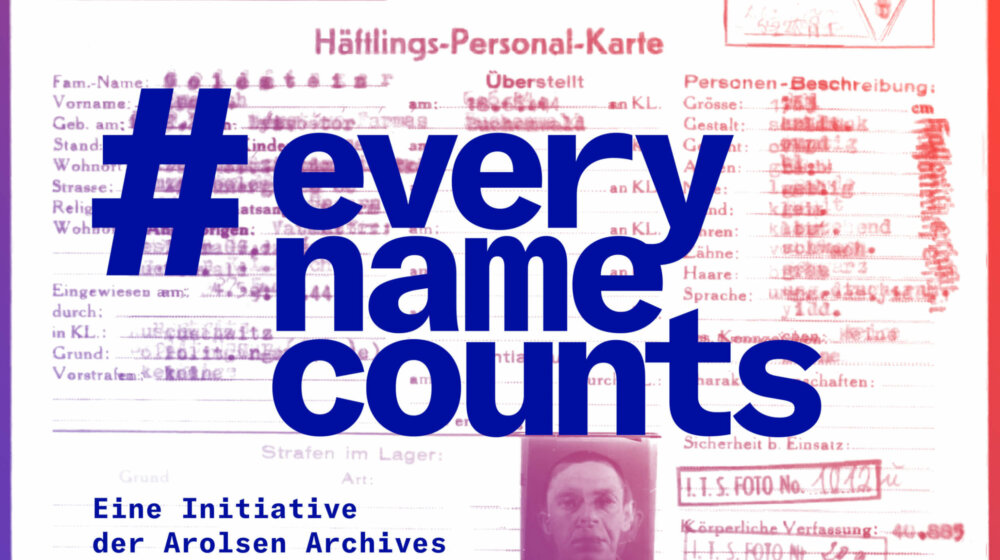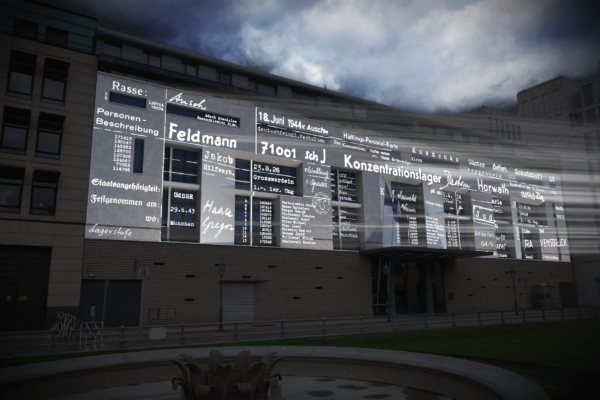Make sure their names will never be forgotten

Together with volunteers from all over the world, the Arolsen Archives are building the largest digital memorial to the victims of Nazism.
- To mark the International Day of Commemoration in Memory of the Victims of the Holocaust on January 27, the Arolsen Archives are calling on people around the world to stand up for respect, diversity, and democracy.
- Anyone can take part in the crowdsourcing project #everynamecounts and digitize documents from concentration camps without even leaving the house.
The #everynamecounts initiative invites people to help build a digital memorial to the victims of Nazism. Anyone can take part and digitize names and biographical data. The aim is to create the most comprehensive online archive on Nazi persecutees. The crowdsourcing projects is being relaunched on January 27, International Holocaust Remembrance Day.
Get involved and take an active stand
No specialist knowledge is needed in order to take part. Volunteers are guided through the archival documents on a crowdsourcing website which includes a practical help function. The documents come from concentration camps and provide insights into how and why people were persecuted by the Nazis.
They also show that the motives for persecution which existed during the Nazi period are still in existence today. “Every piece of information that is newly digitized is an expression of solidarity with the victims,” emphasizes Floriane Azoulay, Director of the Arolsen Archives. “Everyone who participates is sending out a signal in support of respect, diversity, and democracy.” Monika Grütters (former German Minister of State for Culture and the Media unil November 2021) was the first patron of #everynamecounts; the UN supports the initiative, institutions including UNESCO, the Auschwitz-Birkenau State Museum, Anne Frank House in Amsterdam are partners.
Remembrance during the coronavirus pandemic: multi-media installation on live stream
Starting on January 21 already, an evocative multi-media installation will bring #everynamecounts into the public eye. The global artist collective Urbanscreen has created the installation using documents from the Arolsen Archives. The facade of the French Embassy in Berlin will be turned into a huge screen to commemorate the victims of Nazi persecution. The projection will be on show from January 21 to 27 and can be seen from all over the world on live stream.

International cooperation with a growing number of volunteers
The Arolsen Archives launched #everynamecounts as a pilot project in 2020. To reach even more people worldwide, three languages have now been added: In addition to English and German, the project is now also available in Spanish, Polish, and French. Another new feature is a digital introduction that makes it easier to get started with #everynamecounts and is also suitable for use in the context of school projects.
Around 600,000 documents containing personal data
The Arolsen Archives are making around 600,000 documents from various concentration camps available for the crowdsourcing project. They are part of UNESCO’s Memory of the World. They include a large number of prisoner registration cards and registration forms containing important data and biographical information such as prisoners’ places of birth. The documents can also contain the names of prisoners’ relatives; sometimes this is the last remaining trace of them before they were murdered; places of extermination such as Auschwitz-Birkenau or Majdanek are listed as the “places of residence” of prisoners’ parents or siblings.

